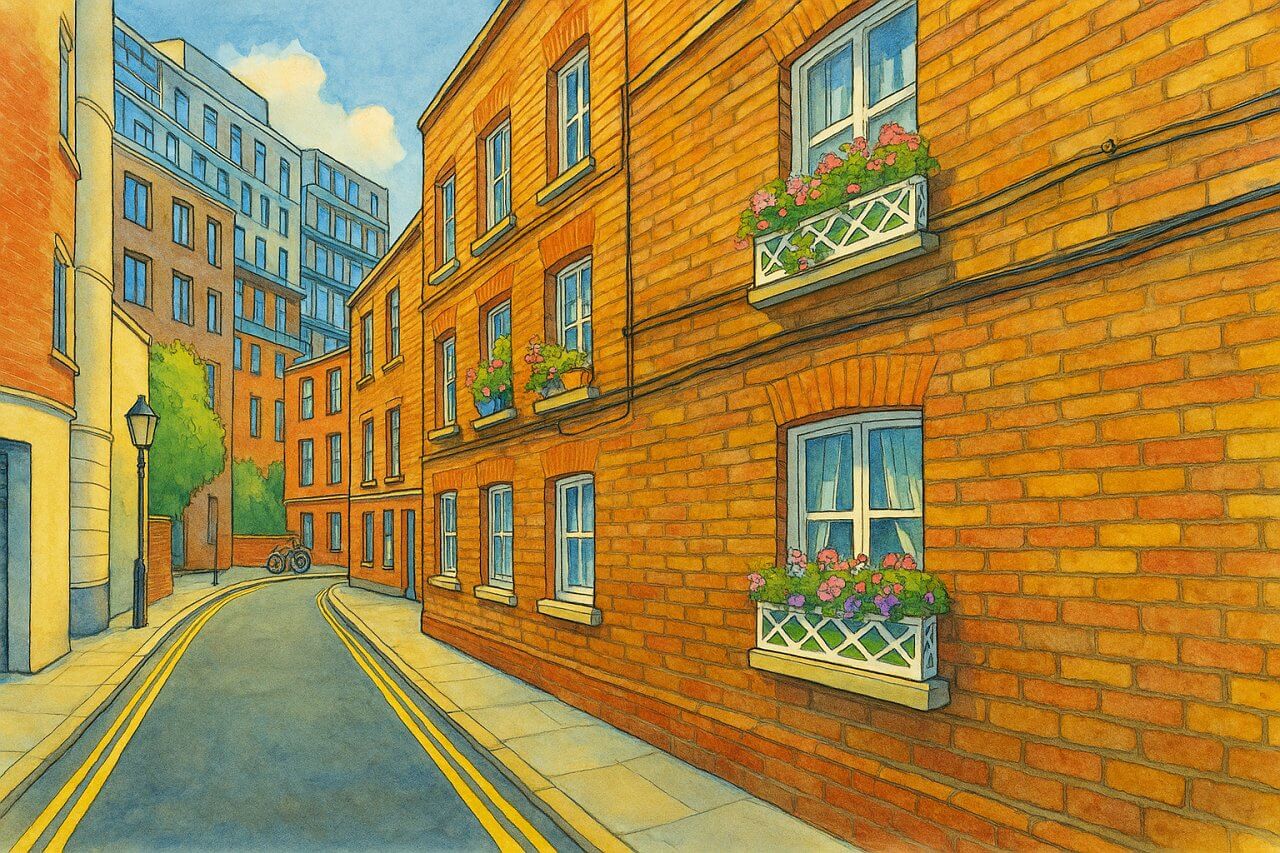
St Matthew Street, London
St Matthew Street is a short street nestled in the heart of the City of Westminster, central London. It lies within the historic area of Westminster, just a stone’s throw away from iconic institutions like Westminster Abbey and the Houses of Parliament.
The street runs in a north-south direction, connecting Old Pye Street in the north to Great Peter Street in the south, forming a small part of the intricate grid of quiet residential roads that make up this lesser-known but historically rich part of the capital.
How Long is St Matthew Street?
St Matthew Street is approximately 250 feet long (about 76 metres), making it one of the shorter roads in Westminster. It’s easily walkable in under a minute, yet it packs a surprising amount of character into its compact length.
The History of St Matthew Street
The street dates back to the mid-to-late 19th century, when Westminster underwent major redevelopment. Much of the area around Old Pye Street was once part of the notorious slum district of “Devil’s Acre”, described in vivid terms by Charles Dickens and other contemporary writers.
After the slum clearance initiatives of the 1860s and 1870s, a number of new residential streets were created to replace the older, overcrowded housing. St Matthew Street emerged during this period as part of a broader Victorian-era effort to improve housing conditions in central London.
How Did St Matthew Street Get Its Name?
St Matthew Street is named after the nearby St Matthew’s Church, Westminster. This Grade II* listed Anglican church, designed by architect George Gilbert Scott, was completed in 1851 and became a spiritual and community focal point for the area.
It is likely that the street received its name soon after the church’s completion in the mid-19th century, in keeping with the tradition of naming roads after local landmarks and institutions. The presence of the church helped redefine the character of the area during and after the Victorian improvements.
Connecting Roads and Surroundings
St Matthew Street forms a direct connection between:
- Old Pye Street – a historic road that winds through a residential section of Westminster
- Great Peter Street – a broader and more active street lined with a mix of residential blocks and offices
Other nearby streets include Abbey Orchard Street to the west and Perkin's Rents to the east, making this part of Westminster a tightly knit patchwork of old and new roads.
Real Estate Prices and Property Sizes
St Matthew Street is primarily residential, and properties here are relatively scarce and highly sought-after due to their central location. As of May 2025, the average property price on St Matthew Street is around £1.15 million, which is slightly below the Westminster average but considerably higher than the London-wide average of approximately £750,000.
Typical properties in the area include two- and three-bedroom flats and terraced houses ranging from 800 to 1,100 square feet (approximately 74 to 102 square metres).
Character of the Street
St Matthew Street is a residential street with a peaceful, community-oriented atmosphere. There are no commercial businesses located directly on the street, which contributes to its quiet charm.
Buildings here are mostly Victorian and Edwardian in style, with some more modern developments subtly integrated into the surrounding architecture. The street feels safe, welcoming, and ideal for those looking to live in central London while enjoying a neighbourhood feel.
Nearest London Underground Stations
Despite its tranquil vibe, St Matthew Street benefits from excellent public transport links. The nearest London Underground stations are:
- St James’s Park Station (District and Circle lines) – approximately 6 minutes on foot
- Westminster Station (Jubilee, District and Circle lines) – about 10 minutes’ walk
- Victoria Station (Victoria, District and Circle lines, plus National Rail) – around 12 minutes on foot
Fun Fact About St Matthew Street
A curious and often overlooked feature of St Matthew Street is its proximity to the St Matthew’s Church bell tower, which still sounds on Sundays and feast days. For locals, the chimes are a pleasant reminder of the area's enduring history, while visitors often find it a surprise to encounter such a quaint and traditional soundscape in the heart of central London.
Another point of interest: parts of the 1949 British film “Passport to Pimlico” were filmed nearby, capturing the post-war character of streets just like St Matthew Street.
Quick Facts about St Matthew Street
- Location: Westminster, London SW1
- Length: Approximately 250 feet (76 metres)
- Connects: Old Pye Street (north) to Great Peter Street (south)
- Historical Significance: Part of Victorian slum clearance and urban renewal
- Named After: St Matthew’s Church, built in 1851
- Street Character: Residential
- Property Prices (2025): ~£1.15 million
- Average Property Size: 800–1,100 sq ft (74–102 sq m)
- Nearest Tube Stations: St James’s Park, Westminster, Victoria
- Fun Fact: Church bells of St Matthew’s still ring out weekly
Map of St Matthew Street, London

Painting of St Matthew Street, London (View image in full size)